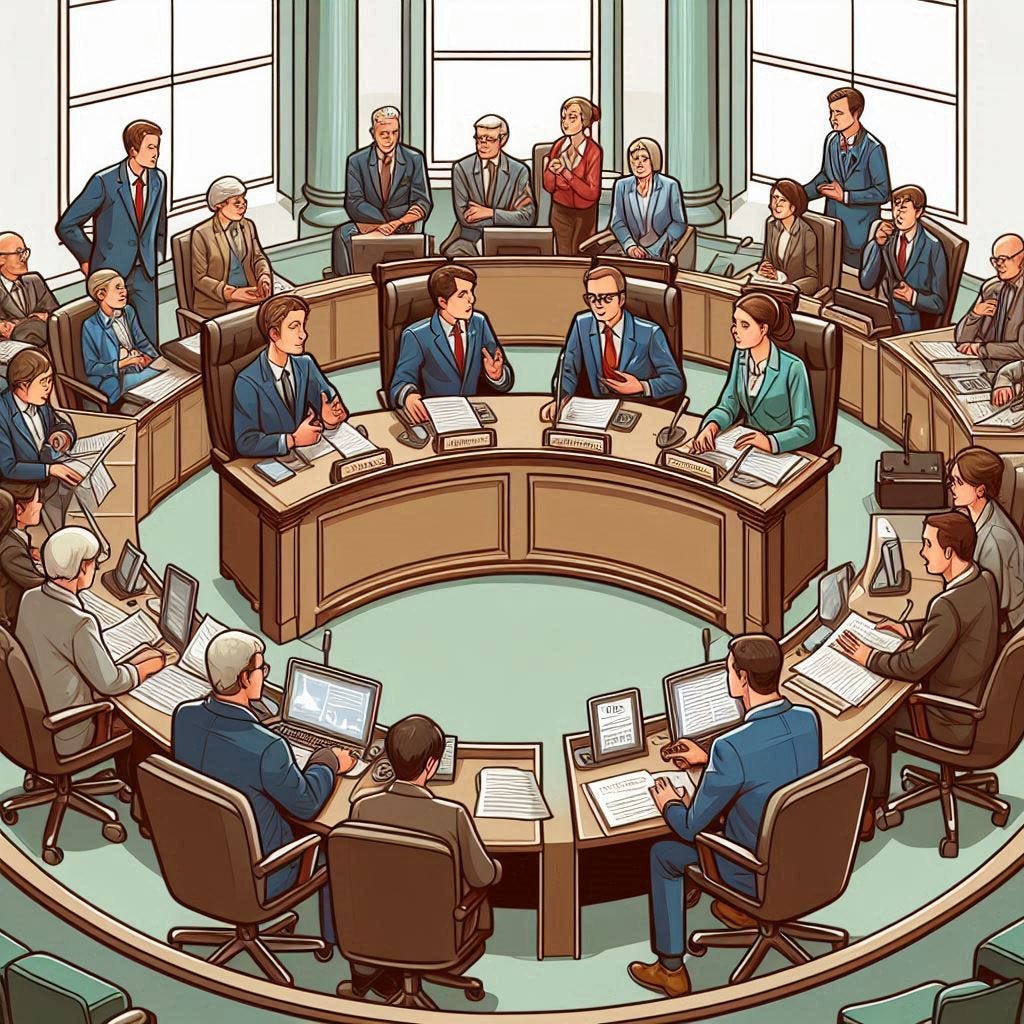Councillors are politicians representing their communities, not corporate directors or Cabinet colleagues
Over at The Post, Andrea Vance has penned a solid critique of Crown Observer Lindsay McKenzie’s first report about his time so far at Wellington City Council.
I found myself nodding along while reading Vance’s opinion piece. It reminded me about my own experience as a councillor, in particular how the role of a councillor is so often misunderstood - or purposefully misapplied - often by people who should know better.
One of Vance’s criticisms of McKenzie is calling out the Crown Observer’s conclusion that councillors were wrong to force a new vote on the airport sale in October and that they could have waited until the scheduled decision-point in December.
As Vance notes:
“With this conclusion, McKenzie fundamentally misunderstands politicians, who once they have the ‘numbers’ will act. To hesitate risks momentum.”
Think of it this way - if in Parliament an opposition realises they have the numbers to defeat or stall a government bill, they tend to use them, even if it’s only to extract compromises or inflict embarrassment if they know the progress of an issue is inevitable.
A good example of this was when National called Labour’s bluff over whether they had the numbers to appoint Trevor Mallard’s as Speaker at the opening of the 52nd Parliament following the 2017 election. Labour panicked and, not wanting to risk losing a vote or needing Mallard to vote for himself, gave National concessions around Select Committees, and Mallard was duly appointed.
Had Simeon Brown (or now Simon Watts) had any genuine opportunity while they were in opposition from 2020 to 2023 to win over any Labour MPs or seize an opportunity that would then allow them to torpedo or embarrass the Government’s three waters legislation as it progressed through Parliament, you absolutely know they would have taken it without hesitation.
The same dynamic plays out in councils because they are, despite what some may think, political institutions.
I remember the long-running saga we had over the Kāpiti Gateway Te Uruhi project while I was on council. I was only the losing side of the first vote, but I used every tool at my disposal from standing orders, speaking out publicly, whistleblowing, notices of motion, through to filibustering during meetings to slowly grind down support.
Was it cynical at times? Absolutely. It was also no less cynical than what proponents were doing including creating glaring conflicts of interest, blatant pre-determination, relying on dodgy business cases that you could drive a bus through, and breaching standing orders to stack public speaking time with their supporters amongst other issues.
As much as I firmly believed (and still do) that it was a fundamentally flawed project that was going to waste millions of dollars in council and central government money for little or most likely no actual benefit, I’m sure proponents of it firmly believed otherwise.
That’s politics for you.
Over time the numbers opposed to the project slowly grew, and with each vote we got a little bit closer to our goal. While it wasn’t until the start of the current triennium and after my triennium on council (I didn’t stand for re-election) that the project was official killed off, I did ensure I went to the meeting and said to the new council “I told you so.”
Throughout the entire ordeal, I remember proponents trying to shut down opposing councillors from speaking out about the project. I remember in one briefing the now mayor trying to convince us that we were all bound by collective responsibility like Cabinet is in what was clearly an attempt to get councillors to stop publicly criticising what was happening.
As you might have guessed, councillors aren’t bound by collective responsibility in the same way Cabinet is. Within a reasonable framework, councillors are able to disagree with decisions that have been made.
On other issues that cropped up over the triennium there were attempts to try and portray those of us on the governing body as a corporate board where our responsibility was to the council rather than the communities that had elected us and who we now served. That we shouldn’t disagree or speak out over how things were progressing because it might undermine confidence in the council. It was truly bizarre at times. There were even occasions when simply the momentum of the process itself was argued as a reason why council shouldn’t change course on something despite overwhelming public opposition.
It’s readily apparent that Wellington City’s councillors have gone through a similar experience over the issue of selling the council’s share in Wellington Airport.
The thing with McKenzie’s claim that airport sale opponents could have waited until December’s vote doesn’t mean they should have. They had the numbers, they’ve evidently followed the correct procedures in bringing their notice of motion, and they struck while the iron was hot.
There were plenty of times during my triennium on Kāpiti Coast District Council when things looked very messy as we discussed and debated an issue, with those on both sides trying to manoeuvre their way through the various processes available to them to maximise the chance of getting the outcome they were after.
The only difference between us and Wellington City Council is that we didn’t have media in the room with us, and only had them even watch our meetings after the fact on YouTube, so there were typically no witnesses to the inherent messiness of democracy in action.
As Vance says:
“There's nothing dodgy or dysfunctional in that. That’s imperfect, messy, democracy.”




